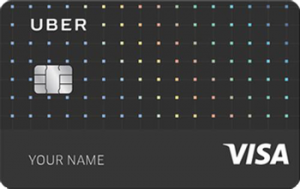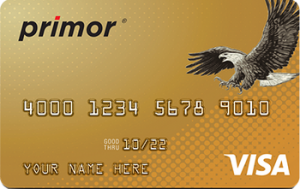
Being a student is hard work. You have to balance classes, homework, studying, clubs, a social life, and possibly even a part-time job. You barely have time to think about anything else, let alone building your credit, but your high school and college years are vital to establishing good credit, and using specialized student credit cards is a great place to begin.
Many card issuers offer these cards that are designed to be easy to qualify for, and while they might not offer the best rewards or flashiest perks, the best student credit cards can be a great way to start to build your credit history.
If you want to get started with building your credit, and maybe earn some rewards along the way, these are some of the best student credit cards on the market.
ALSO READ: CardCruncher’s Complete Guide to Improving Your Credit Score
Bank of America Cash Rewards Credit Card for Students

Bank of America Cash Rewards Credit Card for Students
Annual fee: $0
APR: 0% for 12 months, then 16.24% to 26.24%
Bonus: $0
Rewards: 3% cash back on the category of your choice, 2% on grocery and wholesale clubs, 1% elsewhere
Pro: 25% – 75% reward bonus for Preferred Rewards clients
Con: $2,500 quarterly cap on spending that earns bonus rewards
BankAmericard Credit Card for Students
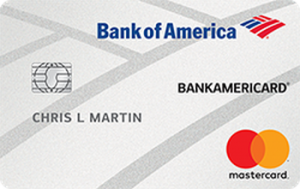
BankAmericard Credit Card for Students
Annual fee: $0
APR: 0% for 15 months, then 15.24% to 25.24%
Bonus: $0
Rewards: None
Pro: Slightly lower interest rate than other Bank of America Rewards
Con: No rewards
Citi Rewards+ Student Card

Citi Student Credit Card
Annual fee: $0
APR: 14.49% - 24.49% (Variable)
Bonus: 2,500 points
Rewards: Earn 2x points per dollar at supermarkets and gas stations, 1x points per dollar elsewhere
Pro: 10% point rebate on the first 100,000 points redeemed annually
Con: Hard to determine the value of a point
Deserve Edu Mastercard
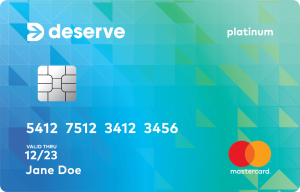
Annual fee: $0
APR: 22.99% Variable
Bonus: $0
Rewards: 1% cash back on all purchases
Pro: Get a free year of Amazon Prime student
Con: Poor rewards rate
Discover it Card Student Cash Back

Discover it® Student Cash Back
Annual fee: $0
APR: 0% for 6 months, then a 14.99% to 23.99%
Bonus: 100% cash back match your first year
Rewards: 5% cash back on a rotating category, 1% elsewhere
Pro: No limit to the size of your cash-back bonus
Con: Poor rewards if you can’t make use of the rotating category bonus
Discover it Chrome for Students
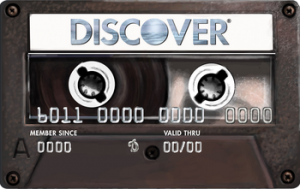
Discover it Chrome for Students
Annual fee: $0
APR: 0% for 6 months, then 14.99% to 23.99%
Bonus: 100% cash-back match your first year
Rewards: 2% cash back on gas stations and restaurants, 1% elsewhere
Pro: No limit to the size of your sign up bonus
Con: Hefty fees
Journey Student Rewards Card from Capital One

Capital One Journey® Student Rewards Card
Annual fee: $0
APR: 29.74% (Variable)
Welcome Bonus: $0
Rewards: 1.25% cash back with on-time payments (otherwise 1%)
Pro: Strong flat-rate rewards
Con: Little reason to keep the card for the long-term
Wells Fargo Cash Back College Visa Card
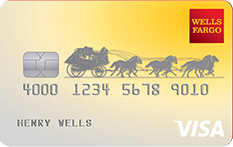
Wells Fargo Student Credit Card
Annual fee: $0
APR: 0% for six months, then 13.40% to 23.40%
Bonus: 3% cash back on select purchases for six months
Rewards: 3% cash back on gas, grocery, and drugstores for up to $2,500 spend in the first 6 months, 1% on all other purchases
Pro: $600 in cell phone protection
Con: Poor rate of cash back after the first six months
Bank of America Travel Rewards Credit Card for Students

Bank of America Travel Rewards Credit Card
Annual fee: $0
APR: 0% for 12 months on purchases, then 17.24% to 25.24%
Bonus: 25,000 points
Rewards: 1.5 points per dollar spent
Pro: Earn an extra 10% points per dollar spent if you have a Bank of America checking/savings account
Con: Can only redeem rewards for travel
>>GET YOUR FREE CRUNCH SCORE TODAY
What are Student Credit Cards?
A student credit card is a specific type of credit card that is designed for students. Typically, these cards are designed for college students, but high school students who are 18 or older can also apply for them.
When you apply for a credit card, card issuers will take a look at your application, and then check your credit report. This report includes information such as your other loan accounts, whether you’ve missed any payments and how much debt you have. The information in your credit report is used to generate your credit score.
Many students have little or no information in their credit report, so card issuers that offer student credit cards are more lenient with approving applications for student credit cards since most lenders want to see longer credit histories before granting approvals.
Of course, this does come at a cost. Premium credit cards can offer credit limits in the tens of thousands of dollars and offer fantastic perks like travel credits, free Uber rides, and more. Student cards are more likely to give you a credit limit in the hundreds of dollars and a small amount of cash back each time that you make a purchase.
Because of this, student credit cards should be viewed as learning tools. The people who design these cards understand that you don’t have much experience with credit, so, even if you do make mistakes, the lower credit limits and some other features will help them from being as damaging to your credit as mistakes that could be made with other types of cards.
Still, just because their perks aren’t as nice as premium cards that are more difficult to qualify for doesn’t mean that you should ignore all of the other benefits that student credit cards bring. With the right card, you can build your credit history and get some nice benefits, like cash back or travel rewards.
What is the Best Student Credit Card of 2020?
Like all personal finance questions, there is no one answer. Finance is personal, and what works for you might not work for someone else, and there are so many student credit cards on the market that it’s impossible to give an exact answer.
What we can do is discuss the different factors to consider when comparing student credit cards, as that might help you decide which card is best for your unique situation.
Qualification Requirements
The first thing to look at when you’re applying for a student credit card is its qualification requirements.
Not all card issuers will publish a full list of their requirements, but you can look at the card’s webpage to get a rough idea of what the card issuer is looking for.
Some cards will require at least some form of credit history before you can be approved. If you have student loans or were an authorized user on a parent or guardian’s credit card, this won’t be an issue. If you’re trying to get your first-ever credit card or loan, these types of cards won’t work for you.
Other cards are truly restricted to students, requiring verification of your student status before you get the card. If you’re taking a year off or otherwise don’t want to provide that proof, you’ll have to consider alternatives.
Remember that student credit cards are designed for young people who don’t have much of a credit history yet, so you should be able to find a card that is within your reach.
Credit Education Tools
Student credit cards are learning tools. They’re your first foray into the world of credit and debt. It’s only fitting that student credit cards should provide some tools to help you learn about credit and credit scores.
At a minimum, look for cards that provide you with a monthly FICO score or a copy of your credit report. Your FICO score is a numerical score that represents your trustworthiness as a borrower. Higher scores are better. Watching your score increase as you use your card properly can help instill proper credit card habits.
Many card issuers offer additional education tools including articles, videos and calculators that you can use to learn more about how credit reporting and credit scoring work. Given the importance of your credit score in your financial life, having these tools available, and using them to learn as much as you can, is important.
Rewards
One of the best reasons to use a credit card, beyond building a credit history, is earning rewards.
The rewards offered by credit cards can come in multiple forms: cash back, rewards points, airline miles, and more. There is also a huge variety in the ways that cards provide these rewards. Some cards will give you the same rewards regardless of where you shop. Others have set categories that give you bonus rewards, yet have more have bonus categories that rotate on a regular basis. Some cards even let you choose your own bonus categories.
Student credit cards don’t offer the best rewards around, but that’s because rewards are a secondary benefit of student cards. Helping you build credit is the primary reason to get the card. Still, pay close attention to the rewards that you can earn, and always try to choose a card that offers rewards if one is available.
From there, it’s up to you to decide what you’re looking for when it comes to rewards. Some people want cash back and others want to travel. Some people value the simplicity of having a card that pays the same rewards regardless of where they shop. Others want to get multiple cards and min-max all of the bonus categories to earn as much as possible.
Regardless of your preferences, the cash back or other rewards that you can earn should definitely be considered when choosing a student card.
Perks
Student cards aren’t known for their amazing perks. Premium travel cards offer travel fee credits, airport lounge access, free checked bags, rideshare credits, and all sort of other perks, so it’s hard for student credit cards to measure up.
That doesn’t mean that student cards offer no perks. In fact, many of the cards offer perks specifically targeted toward students. You might get a free year of Amazon Prime Student, a cash reward for earning good grades, or some other credit card perk. Don’t neglect these benefits when making your decision.
Fees and Interest Rates
Credit cards are, first and foremost, a tool for borrowing money. Credit card companies charge fees and assess interest rates on monthly balances to make money. Understanding this fact, and how it can impact you financially is an essential part of managing credit properly.
In a perfect world, you would use your credit card to buy only what you can afford, then you would pay your bill in full at the end of the month. If you do this, you’ll never pay interest and you’ll have stellar credit.
However, it’s easy to make a mistake and miss a payment. It’s also impossible to predict the future. Something might come up which makes it difficult for you to pay your bill at the end of the month. Regardless of how it happens, you might find have to carry a balance on your card.
Credit cards are known for their hefty interest rates. Student cards especially can have high rates because the card issuers are giving them to students with little to no credit history. While you might plan to never pay interest, if you’re worried that you might have to carry a balance, look for the card with the lowest interest rate.
Similarly, credit cards charge fees for different services, including balance transfers, cash advances, and foreign transactions. Think about how you’ll use your card and what you’ll pay. Compare different cards’ fees to find the cheapest option.
How Long Should You Keep Your Student Credit Card?
Once you’ve received a student credit card, you should use it on a regular basis so that you can start building your credit history.
Once you’ve built up a good credit score, you might wonder how long you should hold on to your student credit card. The answer, usually, is as long as you can.
Credit scores are determined using a variety of factors. One of these factors is the age of your credit history, which includes the average age of your credit card accounts. The more old credit card accounts you have, the better it is for your score. That means that keeping your student card, which is likely your oldest card, open, will be good for your credit score in the long run.
So long as there’s no annual fee or other pressing reason that you want to close the account, try to keep your student credit card open for as long as possible. Even if you don’t use the card regularly, put a charge on it a few times a year to keep it active and let it sit on your credit report, giving your score a boost.
How Can I Build My Credit if I Can’t Qualify for a Student Credit Card?
If you’re looking to build your credit by using a student credit card but find that you’re unable to qualify for any student card that you apply for, it may be because you have poor credit, because you’re not a student, or for any other reason. So, what can you do to build your credit if you can’t qualify for a student credit card?
The best thing to do in this situation is to apply for a secured credit card. These credit cards require that you offer a cash deposit, but almost anyone who can provide that deposit will be able to qualify. Once you’ve provided the deposit, use your secured card just like any other credit card. Pay your bills on time, and your score will slowly improve.
Once your score has improved enough, your deposit can be returned to you and you can apply for an unsecured card.
To learn more about secured credit cards and how they work, check out our list of the Best Secured Credit Cards.
Conclusion
Student credit cards a great way to build your credit, and maybe even earn rewards and got some perks at the same time. If you’re a student, take the time to compare the options that are out there and apply for one. There’s no time like the present when it comes to building your credit history.
CardCruncher may receive a commission from card issuers when you visit their sites through links on ours. The opinions and ratings on CardCruncher have been made independently of those agreements, and have not been reviewed, approved or otherwise endorsed by any card issuer.

